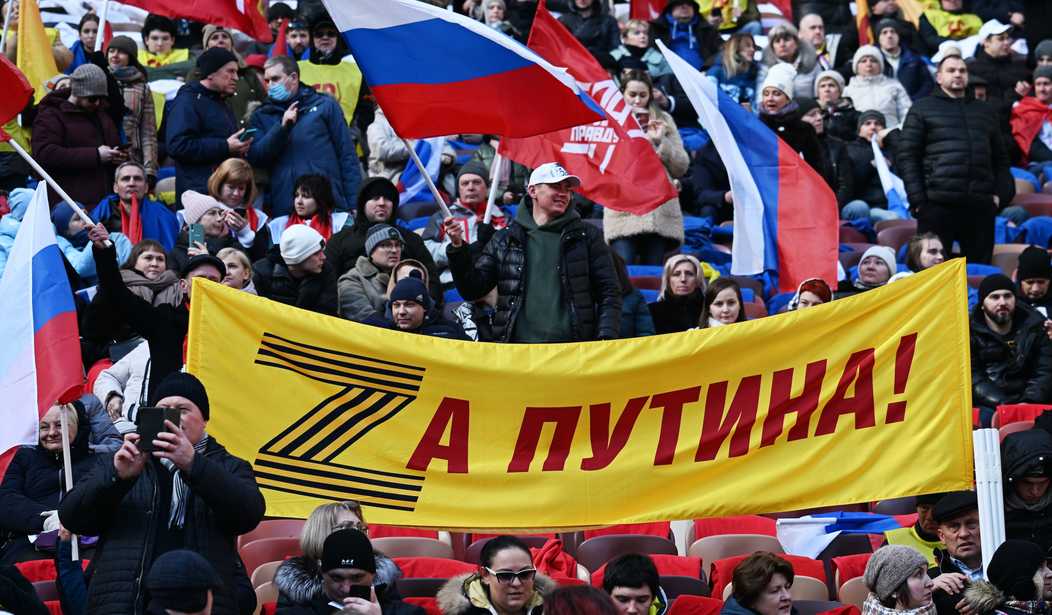The killing of Daria Dugina over the weekend in a car bombing just outside of Moscow marks the return of bombings to the political landscape of Europe. The daughter of Alexander Dugin, one of Vladimir Putin’s allies encouraging the aggressive stance of Russia against Ukraine, was herself an equally polarizing figure who also advocated for imperial ambition for Russia.
Americans would describe someone like Daria Dugina as a “war hawk” and “conspiracy theorist.” Like her father and her president, Dugina believed in the dream of a re-invigorated Soviet Union, a hegemony of imperial stature on the world stage. She promoted views of Russia as a military superpower. She is said to have been working on a book about the war in Ukraine celebrating the Z symbol painted on the armor and trucks of Russia’s “special military operation” invasion force in Ukraine.
Dugina looked down on Russia’s adversaries. She held America in disdain. As a journalist and commentator in the Russian media, Daria was an outspoken propagandist and was under sanctions by the United States at the time of her death. She recently described the Russian Army’s atrocities in the Kyiv suburb of Bucha, where civilians, including a team of Fox journalists, were killed, a false flag “staged event” by the Ukrainians. She visited areas captured by Russia in Ukraine to celebrate the gains of Russia’s conquest.
Miss Dugina was driving home from a Russian nationalist movement event when her Toyota Land Cruiser exploded. Her father, Alexander, was supposed to be with her but made other arrangements to return from the same event separately. She was 29 years old.
These national movement events in Russia are the hotbed of rallying support for the war in Ukraine. This is where the true believers gather to philosophize and dream about power and victory for the Russian agenda. Alexander Dugin is one of the core philosophers of the movement. Daria Dugina was an operative using her position to spread the word. The movement has support. Even President Vladimir Putin has attended televised nationalist rallies.
Speculation
Speculation about the motives and the consequences began even before the last fragments of metal flying from that vehicle came to rest on the ground. Is there underground opposition against the Russian nationalist movement? Was the father, philosopher Alexander, the target? Or was his daughter the actual target?
And who perpetrated the attack? Is there really an active political opposition against the agenda of the Kremlin in Ukraine sufficiently angry and organized to engage in bombings inside a major Russian city like Moscow? Does that mean that economic despair inside Russia is more pronounced than what is being reported in the world press? Does it mean the political matrix of Putin’s Kremlin is collapsing? Is it a signal from Putin’s oligarch rivals that they are not of a mind to let Russian ultra-nationalism continue to saddle them with crushing business sanctions by the west?
Twisting things even more, speculators both inside and outside Russia toy with the possibility that it is related to the war in Ukraine. Ukraine certainly has motive — being invaded does count as a legitimate grudge. But why target a philosopher-propagandist when there’s already an active war being fought on the ground by two armies and plenty of deadly intrigue to go around in the occupied areas of Ukraine?
Never Let a Tragedy Go to Waste
Like tragedies in America, it’s the political use of Daria Dugina’s death as a reason to act against political enemies that spark the greatest speculation of all.
Will Russia use this as an excuse to enter into a new phase of brutal attacks against Ukraine? That is certainly the worry of Ukrainian president Volodymyr Zelensky as his country prepares to celebrate its independence, even as the war grinds on with Russia and both sides preparing their plans for the fall to gain tactical advantage before winter sets in.
Internally, is Russia entering a new phase of domestic discord? Who are the factions that play into such a descent into chaos? And if it goes that direction, is it Putin’s faction consolidating power for imperialism and nationalism? Or does it mean other factions may be rising that could unseat the Putin regime? And if it does, does that mean the aftermath will be a Russia more in the style of European liberal socialism, or a post-Russian Federation landscape pockmarked by a minefield of dictatorial states more akin to the chaos of the Middle East or Africa?
How exactly should the United States and Western Europe react to this? Is it our aim to see Russia pull out of Ukraine, or do we want to see Putin’s government collapse and possibly have to deal with a future of nuclear proliferation by many more rogue hermit kingdoms? Right now, there’s little attention being paid by the west to these unstable possibilities. The United States isn’t anywhere near prepared to deal with the possibility of leading a world where another peer adversary disintegrates yet again. We didn’t do that great a job of dealing with the power vacuum that happened the last time Russia imploded. There’s no reason to think we’ve learned anything about successful nation-building, either as a protagonist or supporting actor, since then. We’re rather unprepared if this killing of Russian ultra-nationalist Daria Dugina turns out to be a catalytic moment in the post-Cold War history of Eurasia.
The danger we will be thrust into such a position of cleaning up the mess to make sure our own national interests are looked out for is a contingency that seems closer to reality, one tragic moment at a time.














